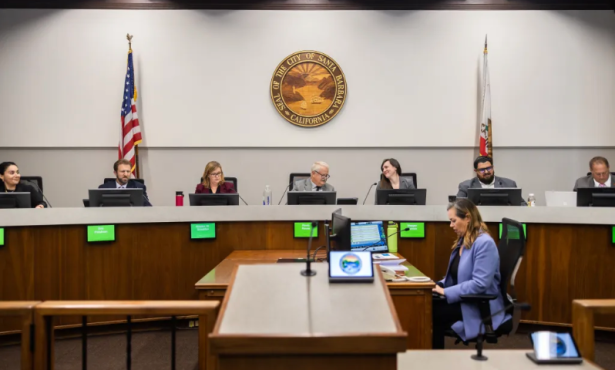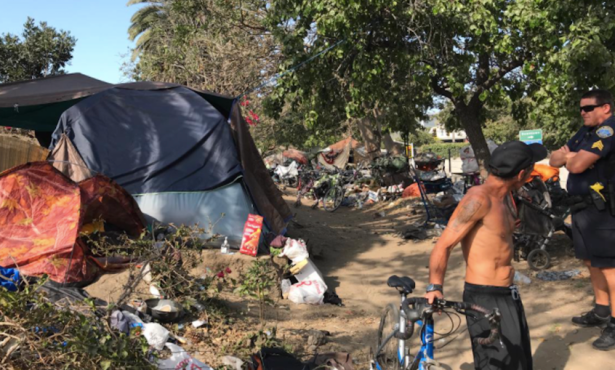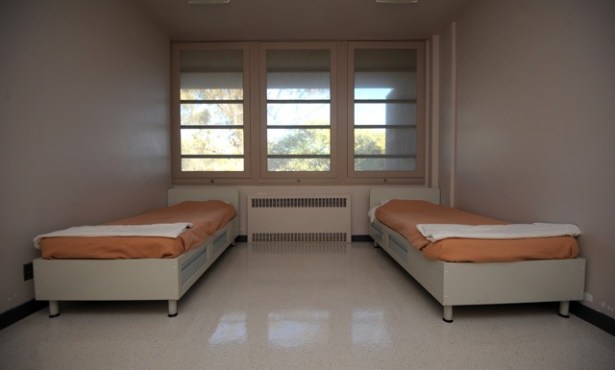County Drops Protest of Casino Liquor Expansion
Chumash Also in Discussions to Bring Camp Four Into Reservation
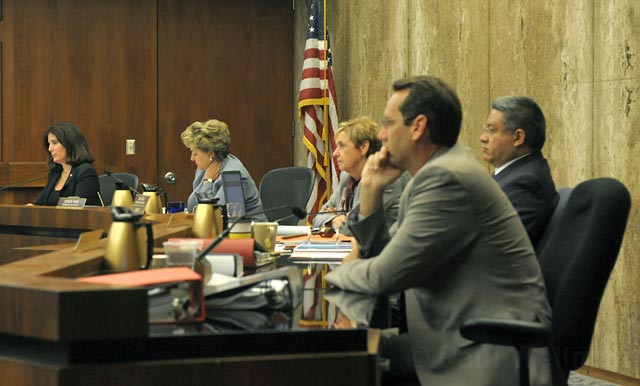
Santa Barbara County is officially withdrawing its protest of the Chumash Casino Resort’s potentially expanded license with the California Department of Alcohol and Beverage Control (ABC), an expansion that would allow the Chumash to serve alcohol in the hotel, a showroom, and the casino buffet.
Alcohol will still be banned from the gaming floor, though opponents — of which there are many — remain strongly opposed to any expansion in any capacity by the tribe. The withdrawal of the protest is conditioned on the casino following more than 20 provisions, including banning children under the age of 18 from the gaming floor and the showroom, providing sufficient lighting in the parking lot of the casino, ensuring that all staff selling alcohol receive training, that the gross sales of alcoholic beverages not exceed the gross sales of food, and that alcohol is served only in conjunction with simultaneous food service.
The provisions are the result of back-and-forth discussions between Chumash representatives, county officials, and Sheriff Bill Brown. Ralph Saltsman, an Indian gaming attorney representing the Chumash, said the tribe agreed to the “extensive conditions” listed by the county. ABC officials, who have already granted an interim permit for the move, have agreed that all the conditions are enforceable, as well.
“There’s no other business that could have a liquor license with this kind of activity,” said casino opponent Doug Herthel.
Opponents cite increased crime rates and aggravated law enforcement issues in the area since the four-story casino opened in 2004. In 2008, the Sheriff’s Department made a total of 149 arrest or offense reports generated by deputies at the casino. The numbers do not include total calls for service nor statistics from other law enforcement agencies. In 2009, the number went up to 154, and in 2010 the total number of arrest or offense reports at the casino was 155. Drug- and alcohol-related crimes were most common: during the three-year span, there were a total of 97 alcohol-related incidents and 198 drug-related crimes. “There’s no other business that could have a liquor license with this kind of activity,” said casino opponent Doug Herthel.
The tribe — as all tribes that run casinos do — contributes to a special state fund that pays for a variety of programs: the state Gambling Control Commission, gambling addiction programs, and public safety services provided to mitigate the impacts of casinos. As part of this, the Sheriff’s Department is supposed to be reimbursed $675,000 for several deputy positions.
This year, as with many payments slated to trickle down from the state, the money has been held hostage, and the funding pool has been greatly reduced. The problem is with the state, Sheriff Brown clarified Tuesday, not with the tribe, but the funding issues mean the sheriff can no longer front the money and hope to be reimbursed.
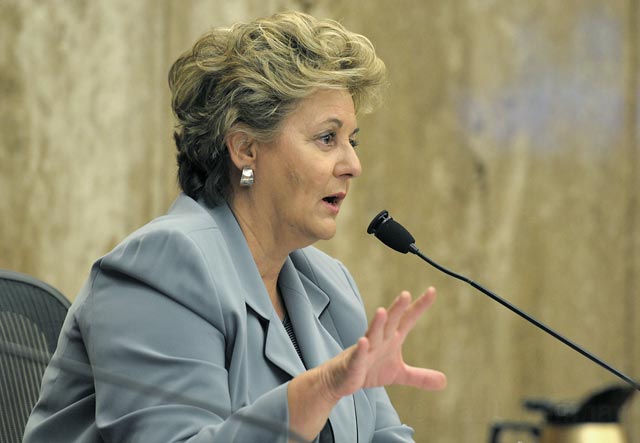
Doreen Farr, 3rd District supervisor, and 2nd District Supervisor Janet Wolf voted to keep the protest in place, but the two were outnumbered. Farr said that the board must look at what is in the best interest of the community at large, calling the impacts of the casino “enormous.”
“We’ve lost the balance on this issue,” said Farr, the only one of the five supervisors who hasn’t been given campaign money by the Chumash over the years. Since 1999, according to the Secretary of State, the Chumash have donated to the other four’s election campaigns — most recently $4,500 to Wolf’s reelection in 2010, along with $5,000 in 2006. The Chumash also gave $3,000 to 5th District Supervisor Steve Lavagnino’s 2010 campaign, and contributed $5,000 to 1st District Supervisor Salud Carbajal in 2004 and $1,000 to 4th District Supervisor Joni Gray in 2001.
ABC will still conduct a hearing, at which plenty of public protests will surely be heard, but is likely to grant the license to the casino.
Meanwhile, Farr, in an email to 3rd District residents late last month, said the county CEO’s Office had participated in discussions about a possible mitigation agreement — which would resolve jurisdictional and other issues between the tribe and county — should the Chumash decide to try to make the 1,390-acre Camp Four property a part of its reservation. The tribe purchased the Camp Four property, on the northeast corner of Highways 154 and 246, from Fess Parker last year.
CEO Chandra Wallar explained in an email to The Independent on Tuesday that she had had a meet-and-greet with Chumash chairman Vincent Armenta and the governmental liaison for the tribe, during which the two sides “briefly discussed that the Tribe owned land they would possibly be seeking to bring into Trust,” that is, seek permission from the federal government to annex the property into the reservation, known as a “fee to trust” process.
The Chumash had apparently already started discussions with Representative Elton Gallegly seeking assistance in doing just that. The property is currently zoned as agricultural and also falls under the Williamson Act, which means the tribe would not currently be able to develop the property, once the site of a proposal from the Chumash and Parker to build a resort, 500 homes, and two golf courses. But if the fee to trust goes forward, the Chumash would no longer be tied down by state and local land-use laws.
Farr has come out against a fee-to-trust, though local government has no real veto power. In a letter to Gallegly last March, she said she was “strongly opposed” to legislation that would place the land into trust through direct federal legislation, saying it bypasses input from the surrounding community, which has a vested stake in potential growth in the largely undeveloped Santa Ynez Valley. Given how strong opposition has been to the tribe’s fee-to-trust plan for a 6.9-acre site located just across Highway 246 from the reservation in the valley, opposition to any annexation for this site — which has no geographical connection to the reservation — is expected to be just as vocal.
Wallar said she received a draft mitigation agreement from the Chumash recently, but has been busy with the county budget and has not had any further discussions with the Chumash on any proposal. In such an agreement, the Chumash would pay an annual fee to offset county services and loss-of-property taxes if the land were taken off the county’s tax roll.
A tribal spokesperson had no comment on potential plans at Camp Four.

